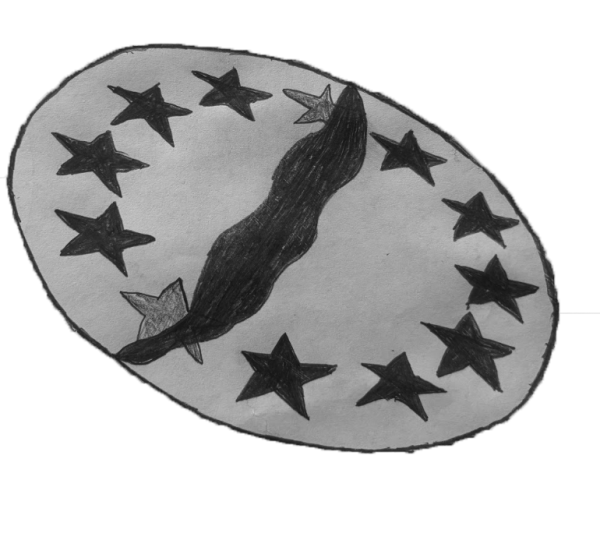Two Halves Make a Whole
New hope for carbon taxing.

The presidential election hit hard, and the failure of Washington State’s carbon tax really packed the punch. At a critical point in international efforts to combat global warming, we have deepened our problems.
Initiative 732 proposed the first carbon tax in our nation’s history. However, this bill was controversial among environmental activists, and thus did not pass in Washington State. It would have shifted our existing tax burden away from taxes on goods, businesses and families, and onto companies that produce carbon pollution. The intent was to motivate big carbon consuming companies to look for more reusable sources of energy.
This carbon tax projected a contribution of 2.2 billion dollars to Washington State’s annual 21 billion dollar tax revenue. This revenue would also play out in the lives of many Washington State lower-income families, as they would have received tax refunds through WFTR (Working Families Tax Rebate). As companies would begin to cut down their carbon emissions, the tax would increase by a 3.5% inflation rate so carbon emissions would become more expensive to release each year.
However, months before the vote, I-732 divided many activist groups around Washington. Carbon Washington, a nonprofit activist group lead by environmental economist Yoram Bauman, drafted the 1-732 but was unable reach out to communities of color. Bauman aimed to create a plan that would be more likely to pass by making I-732 revenue neutral (the income for the state from the shift in taxes would be equivalent). Carbon WA hoped the initiative would appeal to conservative areas, such as Eastern Washington and, at the same time, keep the bigger companies from moving out of state and taking jobs with them.
The Alliance for Jobs and Clean Energy is a separate non-profit coalition of Washington climate activist groups including Got Green and Climate Solutions. However, The Alliance never drafted their own initiative, instead focusing on how to build consensus within Washington’s diverse communities. According to Senior Policy Advisor of Climate Solutions, KC Golden, The Alliance didn’t want to split the vote for a carbon tax by creating a second initiative.
The Alliance criticized Initiative-732’s revenue proposal, predicting that it would have negative revenue and take safety net resources away from lower-income families in Washington.
As the election drew closer, tension between activist groups grew with organizations like the Sierra Club and 350.org opposing I-732. Climate change deniers and general anti-tax people also voted against the initiative; thus the first carbon tax of the country did not pass.
A carbon tax system was established in British Columbia in 2008 and was successful, lowering the province’s carbon emissions by 16% according to The Economist. Since then, California, Oregon, Washington and British Columbia have formed the Pacific Coast Collaborative (PCC) to pursue joint action on climate change issues, proclaiming that they will strive to take “bold action to achieve the targets set in the Paris Agreement” according to the Seattle Post Intelligencer.
The Alliance is hoping to draft an initiative for the 2018 or 2020 elections, depending on whether the legislature can create their own climate action bills that will lower carbon emissions and move towards clean energy. The Alliance intends to continue to reach out to poorer communities in an attempt to understand their needs. When it comes to environmental issues, lower income families are notoriously the most affected yet least consulted. This is referred to as “environmental racism.”
As for Carbon WA, Yoram Bauman spoke hopefully of the future.
“We’re still trying to figure out what to do next… We’re not going to tackle climate change by doing nothing, so I’m eager to see continued efforts to put a price on carbon in 2018,” said Bauman.
Last month Governor Jay Inslee proposed a new carbon tax policy to the legislature (“Carbon Pricing Plan for Washington”). According to the governor’s website, the revenue created from the tax would introduce new energy efficiency programs.
Another development that is picking up speed is the federal and state lawsuits against the government for failing to take action on climate change. The lawsuit is lead by Our Children’s Trust, a program of youth that, according to their press release, is set on implementing “enforceable science-based climate recovery plans that will return atmospheric carbon dioxide concentration to levels below 350 ppm.” You can sign the petition to support this groundbreaking lawsuit at www.ourchildrenstrust.org.
The failure of I-732 was a wake-up call that we need to unite our efforts against climate change. Global warming costs a lot more than any tax ever could. If we become the first state with carbon taxing, there is great potential that other states will follow. However, a carbon tax alone is not enough. Call on your legislators to protect our environment. Tell your family and spread the word that an improved version of the carbon tax initiative may appear on 2018’s ballot. Let’s spur the movement in our nation! Direct your anger from the election into good use!



